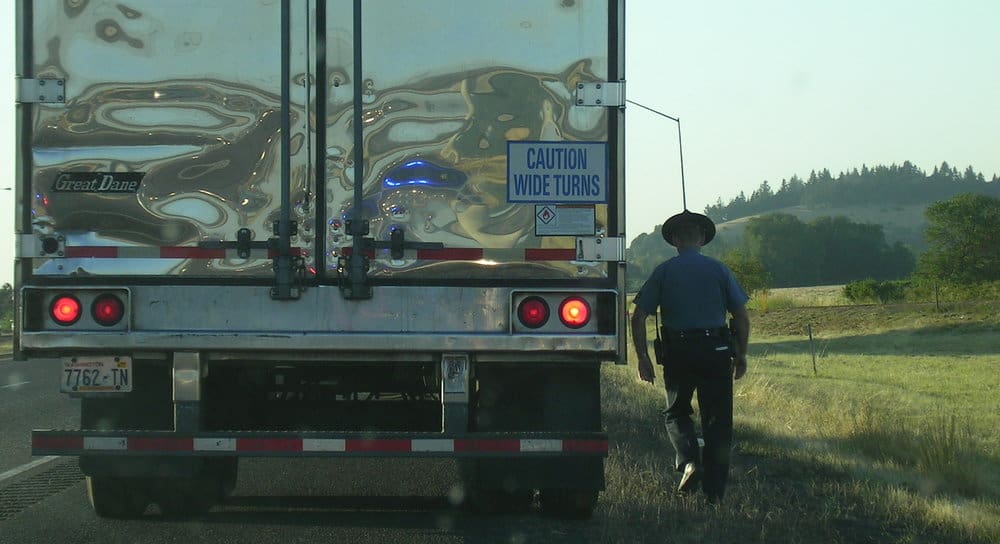
Commentary
For many fleets, the electronic logging device (ELD) mandate presents a new variable in the regulatory landscape that must be carefully navigated. Following the best practices below will help fleet managers identify the most common mistakes and pitfalls that may result in a fine, expensive roadside delays or even worse, a business shutdown.
Monitoring for HOS Violations
The most likely violation that could occur under the ELD mandate is also the most obvious: a driver deciding not to log in to the device before starting his route. If drivers know they might receive an hours of service (HOS) violation if logged in, some might avoid logging in altogether.
In a recent webinar hosted by Spireon, transportation industry consultant John Seidl said these types of violations are easy to catch as long as the fleet manager is paying attention. Seidl used the example of a driver whose log showed him ending the day in Lima, OH, but starting the next day in Reading, PA, which is 518 miles away.
“What I suggest is you teach drivers how this works and how you catch them to prevent them from trying it,” Seidl said.
Best Practices for the Back Office
To ensure compliance, Fleet managers should regularly audit driver logs to check for ways drivers might try to squeeze in more driving time. One of these concerns is fueling and loading/unloading. Drivers must count these activities as “on-duty, not-driving.” However, some drivers may try to count that time as “off-duty.” Some ELD solutions contain a loophole that allows fueling and loading/unloading to be logged this way, even though it violates HOS laws. Drivers need to understand the law and how it can protect them, and fleet managers need to watch for these violations to maintain compliance. In today’s technology-driven economy, drivers and trucks leave an electronic trail of breadcrumbs wherever they go which provides a rich dataset for authorities to audit logs against. Making sure logs match reality will ultimately be the best defense for fleet managers and drivers.
Another back-office task that is crucial to avoiding violations is the submission of supporting documents within 13 days of an audit request. These documents provide additional evidence to back up the ELD’s record of the driver’s use of time by identifying the driver, date, location and time. Examples of these documents include a toll receipt or a shipper bill of lading. Failing to maintain these documents could bring unwanted scrutiny.
Attempting to Outsmart the ELD
According to the Federal Motor Carrier Safety Administration (FMCSA) guidelines, the ELD can delay recording driving time until the vehicle hits a speed greater than five miles per hour. Because of this, many ELDs are automatically programmed to this setting. Seidl recommends changing the setting to zero miles per hour to prevent abuse.
“I just heard a story from a trucking company about a month ago,” Seidl said. “They had a driver that drove three miles per hour to get from one location to another on a road, which is completely unsafe, so he could keep his log in the “off-duty” status.”
Respecting Drivers’ Breaks
In an effort to address concerns of driver harassment and privacy, the FMCSA dictates that if drivers are expected to respond to urgent messages coming through the ELD during drivers’ breaks, that interruption counts as “on-duty” time.
“If you send repeated messages through any kind of communication—‘repeated messages’ is key—you cannot consider that time to be off-duty,” Seidl said. “Train drivers and dispatchers not to demand communication back and forth during mandatory 30-minute breaks and/or 10-hour breaks.”
Create a Culture of Safety
Ultimately, fostering a culture of safety and respect is your best bet for a successful ELD rollout. When drivers understand that the regulation was put in place to ensure their own compliance, reputation and livelihood, they’ll be able to focus more on what they do best, and what earns them money: driving! While hiccups and frustration are to be expected at first, making our industry and highways safer is ultimately worth the learning curve.
Dean Croke is vice president of data products at Spireon. Spireon is a connected vehicle intelligence company, providing businesses and consumers with insights to track, manage and protect their most valuable mobile assets. You can learn more about Spireon’s products at www.spireon.com.
Stay up-to-date with the latest commentary and insights on FreightTech and the impact to the markets by subscribing.







